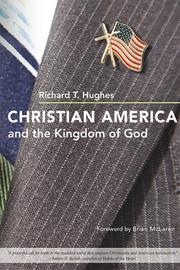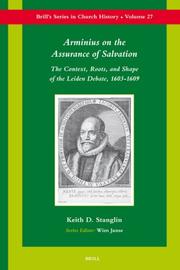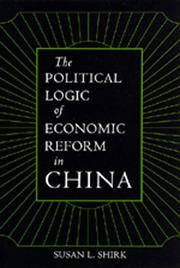| Listing 1 - 8 of 8 |
Sort by
|
Book
ISBN: 1498542425 1498542433 9781498542432 9781498542425 Year: 2017 Publisher: Lanham, Maryland
Abstract | Keywords | Export | Availability | Bookmark
 Loading...
Loading...Choose an application
- Reference Manager
- EndNote
- RefWorks (Direct export to RefWorks)
Judaism --- Particularism (Theology) --- Judaism and philosophy. --- History

ISBN: 1283044013 9786613044013 025209154X 9780252091544 9780252032851 0252032853 9781283044011 6613044016 0252078896 9780252078897 Year: 2009 Publisher: Urbana
Abstract | Keywords | Export | Availability | Bookmark
 Loading...
Loading...Choose an application
- Reference Manager
- EndNote
- RefWorks (Direct export to RefWorks)
Particularism (Theology) --- Kingdom of God --- Christianity and politics --- Election (Theology) --- God, Kingdom of --- Eschatology --- God (Christianity) --- Biblical teaching. --- Political aspects
Book
ISBN: 9789004292680 9004292683 9789004292697 9004292691 Year: 2015 Publisher: Leiden BRILL
Abstract | Keywords | Export | Availability | Bookmark
 Loading...
Loading...Choose an application
- Reference Manager
- EndNote
- RefWorks (Direct export to RefWorks)
In this tribute to Steven T. Katz on the occasion of his seventieth birthday, Michael Zank and Ingrid Anderson present sixteen original essays written by senior and junior scholars in comparative religion, philosophy of religion, modern Judaism, and theology after the Holocaust, fields of inquiry where Steven Katz made major contributions over the course of his distinguished scholarly career. The authors of this volume, specialists in Jewish history, especially the modern experience, and Jewish thought from the Bible to Buber, offer theoretical and practical observations on the value of the particular. Contributions range from Tim Knepper’s reevaluation of the ineffability discourse to the particulars of the Settlement Cookbook, examined by Nora Rubel as an American classic.
Jewish philosophy --- Particularism (Theology) --- 296 <082> --- Election (Theology) --- Judaïsme. Jodendom--Feestbundels. Festschriften --- Festschrift - Libri Amicorum --- Jewish philosophy. --- Philosophy, Jewish --- Jews --- Philosophy, Israeli --- Philosophy --- 2000 - 2099
Book
ISBN: 1644696150 1644696142 1644696134 1644697025 Year: 2021 Publisher: Boston, MA : Academic Studies Press,
Abstract | Keywords | Export | Availability | Bookmark
 Loading...
Loading...Choose an application
- Reference Manager
- EndNote
- RefWorks (Direct export to RefWorks)
Maimonides’ Guide of the Perplexed addressed Jews of his day who felt challenged by apparent contradictions between Torah and science. We Are Not Alone: A Maimonidean Theology of the Other uses Maimonides’ writings to address Jews of today who are perplexed by apparent contradictions between the morality of the Torah and their conviction that all human beings are created in the image of God and are the object of divine concern, that other religions have value, that genocide is never justified, and that slavery is evil. Individuals who choose to emphasize the moral and universalist elements of Jewish tradition can often find support in positions explicitly held by Maimonides or implied by his teachings. We Are Not Alone offers an ethical and universalist vision of traditionalist Judaism.
Judaism --- Universalism. --- Relations. --- Maimonides, Moses, --- Teachings. --- Christianity. --- Jewish studies. --- Judaism. --- Maimonides. --- Torah. --- chosen people. --- converts. --- criticism. --- ethics. --- idolatry. --- inner nature. --- morality. --- others. --- particularism. --- philosophy. --- rabbinics. --- religion. --- theology. --- tradition. --- universalism.
Book
ISBN: 9781589836501 9781589836518 1589836510 1589836502 Year: 2012 Volume: 11 Publisher: Atlanta
Abstract | Keywords | Export | Availability | Bookmark
 Loading...
Loading...Choose an application
- Reference Manager
- EndNote
- RefWorks (Direct export to RefWorks)
Universalism. --- Particularism (Theology) --- Bible. --- Criticism, interpretation, etc. --- Sodom (Extinct city) --- Gomorrah (Extinct city) --- Universalism --- 222.2 --- Salus extra ecclesiam --- Universal salvation --- Salvation --- Salvation after death --- Election (Theology) --- Genesis --- Christianity --- Israel --- Sedom (Extinct city) --- Antiquities --- Be-reshit (Book of the Old Testament) --- Bereshit (Book of the Old Testament) --- Bytie (Book of the Old Testament) --- Chʻangsegi (Book of the Old Testament) --- Genesis (Book of the Old Testament) --- Sifr al-Takwīn --- Takwīn (Book of the Old Testament)

ISBN: 1281917095 9786611917098 9047418980 9789047418986 9789004156081 9004156089 Year: 2007 Publisher: Leiden Brill
Abstract | Keywords | Export | Availability | Bookmark
 Loading...
Loading...Choose an application
- Reference Manager
- EndNote
- RefWorks (Direct export to RefWorks)
Although scholarship has treated, on the one hand, some aspects of Jacobus Arminius’s theology, and on the other hand, the doctrine of assurance in the Reformed theologians of early Protestant orthodoxy, nevertheless proper attention has not yet been given to the intersection of these topics: Arminius’s doctrine of assurance. With special attention to previously neglected primary sources, this book offers stimulating insights into the academic context of Arminius, and, along with a comparative analysis of his colleagues at Leiden University, explores new horizons in his doctrines of salvation and assurance. Arminius’s search for true assurance of salvation emerges as a decisive factor in his famous dissent from Reformed theology.
Debatten. --- Predestinatie. --- Soteriologie. --- Assurance (Theology) --- Religious disputations --- Colloquies, Religious --- Disputations, Religious --- Disputations, Theological --- Religious colloquies --- Religious debates --- Theological disputations --- Theology --- Debates and debating --- Eternal security --- Security of the believer --- Particularism (Theology) --- Salvation --- History of doctrines --- History --- Disputations --- Christianity --- Arminius, Jacobus, --- Arminius, James, --- Hermans, Jacob, --- Arminius, Jacques, --- Leiden. --- 284.91 --- 284.91 Arminianisme. Remonstranten. Synode van Dordrecht--(1618-1619) --- Arminianisme. Remonstranten. Synode van Dordrecht--(1618-1619) --- Arminius, Jacobus

ISBN: 0585108234 0520912217 9780520912212 9780585108230 0520077067 0520077075 9780520077072 9780520077065 Year: 1993 Publisher: Berkeley University of California Press
Abstract | Keywords | Export | Availability | Bookmark
 Loading...
Loading...Choose an application
- Reference Manager
- EndNote
- RefWorks (Direct export to RefWorks)
In the past decade, China was able to carry out economic reform without political reform, while the Soviet Union attempted the opposite strategy. How did China succeed at economic market reform without changing communist rule? Susan Shirk shows that Chinese communist political institutions are more flexible and less centralized than their Soviet counterparts were. Shirk pioneers a rational choice institutional approach to analyze policy-making in a non-democratic authoritarian country and to explain the history of Chinese market reforms from 1979 to the present. Drawing on extensive interviews with high-level Chinese officials, she pieces together detailed histories of economic reform policy decisions and shows how the political logic of Chinese communist institutions shaped those decisions. Combining theoretical ambition with the flavor of on-the-ground policy-making in Beijing, this book is a major contribution to the study of reform in China and other communist countries.
Economic History --- Business & Economics --- China --- Economic policy --- Politics and government --- HISTORY / Asia / General. --- 20th century chinese policy. --- asian history. --- authoritarian. --- beijing. --- california series on social choice and political economy. --- china. --- chinese communist institutions. --- chinese history. --- communism. --- communist rule. --- economic market reform. --- economic policy. --- economic reform policy. --- economic reform. --- economics. --- fiscal decentralization. --- government and governing. --- leadership. --- particularism. --- policy making. --- political institutions. --- politics. --- price reform. --- profit contracting. --- reciprocal accountability. --- reform. --- soviet union. --- tax for profit.
Book
Year: 2020 Publisher: Basel, Switzerland MDPI - Multidisciplinary Digital Publishing Institute
Abstract | Keywords | Export | Availability | Bookmark
 Loading...
Loading...Choose an application
- Reference Manager
- EndNote
- RefWorks (Direct export to RefWorks)
The articles in this volume present a variety of theoretical and historical cases to enlarge our understanding of religious conflict and coexistence. Seven out of the ten articles discuss cases of major religions in Korea, including Shamanism, Buddhism, Taoism, Confucianism, and Christianity. They explore the particularity of Korean religions in seeking theological and philosophical inclusiveness, playing a positive role in society and building stable interreligious relations. The other three articles cover non-Korean themes including religious conflict of interfaith families, a biblical analysis of particularism and universalism and a new interpretation of Paul’s letter to the Romans. All of these articles are aimed at identifying major causes of religious conflict and finding some effective solutions drawn from various theoretical and practical domains.
early Korean Catholicism --- Confucianism --- women and Catholicism --- Catholic saints --- particularism --- universalism --- intolerance --- purity --- Leviticus --- colonialism --- anti-Semitism --- Korean Buddhism --- Jinul --- sudden enlightenment --- gradual cultivation --- Korean Seon --- Zen --- potentiality and actuality --- Aristotelian metaphysics --- religious conflicts --- coexistence of religions --- Korean religions --- Jeju Island --- Buddhism --- syncretism --- harmonization (hoetong) --- Unified Silla (668–935) --- Goryeo (918–1392) --- New Testament --- the letter to Romans --- Paul --- sect --- cult --- anti-Jewish discourses --- Jews and gentiles --- unity --- second temple Judaism --- Roman empire --- Suun Choe Je-u --- Joseon dynasty --- Donghak --- religious pluralism --- mysticism --- ethics --- perennial philosophy --- enlightenment --- morality books --- spirit-writing --- Kwanwang shrines --- Thearch Kwan (Kwanje/Guandi) --- Three Sages --- Late Chosŏn --- Korea Christian Action Organization for Urban Industrial Mission (Saseon) --- Korean Protestantism --- Korean Catholicism --- social justice --- solidarity --- interfaith families --- public --- Christian --- Jewish --- gender --- United States --- n/a --- Unified Silla (668-935) --- Goryeo (918-1392) --- Late Chosŏn
| Listing 1 - 8 of 8 |
Sort by
|

 Search
Search Feedback
Feedback About UniCat
About UniCat  Help
Help News
News